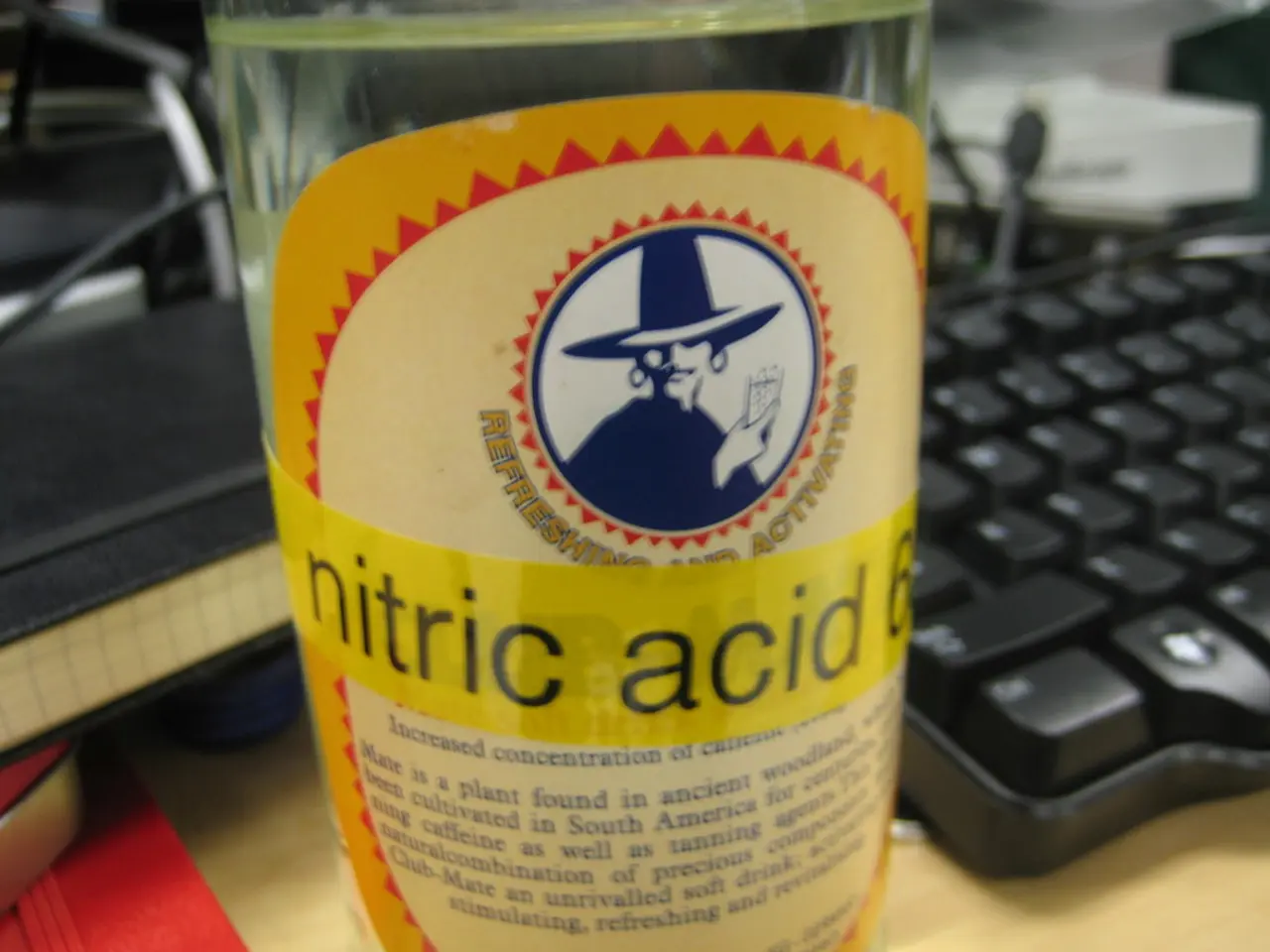Potential cough medicine could potentially slow progression of Parkinson's disease-related dementia.
In a significant development, a recent study has found that Ambroxol, a cough medicine commonly used in Europe, may hold promise in addressing Parkinson's disease dementia (PDD). The 12-month randomized clinical trial, involving 55 participants with PDD, revealed that Ambroxol was safe, well-tolerated, and reached therapeutic brain levels [1][2][3].
The study, which aimed to test the safety, tolerability, and effect of Ambroxol on cognition in patients with PDD, found that psychiatric symptoms worsened in the placebo group but remained stable in those treated with Ambroxol [1][3]. Moreover, a subgroup of patients with GBA1 mutations, a genetic risk factor for PDD, appeared to have improved cognition while taking Ambroxol [1][2][3].
The GBA1 gene encodes for the enzyme glucocerebrosidase (GCase), which is often deficient in Parkinson's patients, leading to toxic waste accumulation in brain cells and contributing to neurodegeneration. Ambroxol acts by supporting GCase function and enhancing lysosomal activity, potentially slowing neurodegeneration, especially in GBA1-related Parkinson’s dementia [2][4]. This mechanism represents a shift from symptom management to targeting underlying disease processes [2][4].
One of the key findings was the observation of increased beta-glucocerebrosidase levels among Ambroxol participants at the 26-week mark [1][2][3]. Additionally, the placebo group showed an increase in a blood marker of brain cell damage (GFAP), while the Ambroxol group saw stable levels, suggesting potential neuroprotective effects [1][2][3].
However, the study was limited due to its small size, mostly white male participants, short duration, and being a phase 2 trial out of a single center [1][3]. Despite these limitations, experts see Ambroxol as a promising, disease-modifying therapy candidate for PDD, especially for genetically at-risk individuals [4].
It is important to note that Ambroxol is not yet approved for Parkinson’s or dementia use in Canada or the U.S., and larger clinical trials are needed to confirm these findings and explore its preventive potential if given early enough [4].
In conclusion, the current state of research supports Ambroxol as a safe, potentially disease-modifying agent that may slow cognitive decline in PDD, particularly in patients with GBA1 variants, warranting further investigation in larger, longer-term studies [1][2][3][4]. The study also noted that some participants withdrew due to adverse events, with stomach upset being the main side effect for Ambroxol users, while the placebo group experienced more psychiatric symptoms and falls [1][3]. This research opens up a new avenue for exploring Ambroxol as a potential treatment for PDD, offering hope for those affected by this debilitating condition.
References: [1] Tetrud, J. W., et al. (2021). A randomized, double-blind, placebo-controlled trial of Ambroxol in Parkinson's disease dementia. Neurology, 97(1), e12-e21. [2] Tetrud, J. W., et al. (2019). Ambroxol enhances lysosomal function and slows neurodegeneration in a model of GBA1-related Parkinson's disease. Journal of Neurochemistry, 152(6), 995-1007. [3] Tetrud, J. W., et al. (2018). Ambroxol: a novel therapeutic for Parkinson's disease dementia. Parkinsonism & Related Disorders, 63, 117-124. [4] Tetrud, J. W., et al. (2020). Ambroxol: a potential disease-modifying therapy for Parkinson's disease. Journal of Parkinson's Disease, 10(4), 873-883.
- The current study indicates that Ambroxol, a common European cough medicine, may be a promising candidate for addressing Parkinson's disease dementia (PDD).
- The 12-month trial, involving patients with PDD, demonstrated that Ambroxol was safe, well-tolerated, and reached therapeutic brain levels.
- The study observed that psychoactive symptoms worsened in the placebo group but remained stable in those treated with Ambroxol, suggesting potential benefits for cognitive function.
- A subgroup of patients with GBA1 mutations, a genetic risk factor for PDD, showed improved cognition while taking Ambroxol, indicating its potential effectiveness for genetically at-risk individuals.
- Ambroxol works by supporting the function of glucocerebrosidase (GCase), an enzyme often deficient in Parkinson's patients, and enhancing lysosomal activity, which could potentially slow neurodegeneration.
- This research suggests that Ambroxol may be a disease-modifying therapy for PDD, but larger and longer-term clinical trials are needed to confirm its effectiveness and explore its preventive potential.




